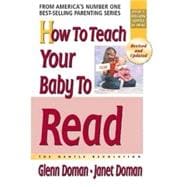About a year ago Wesley’s speech therapist mentioned she had attended a workshop where a woman presented a program about how to use flashcards to teach young children to read. Our therapist said it wasn’t the same as, but was similar to, this book (and other books like it; there are several):

Our therapist said she went with great skepticism, but while there she met parents of some special needs kids she had worked with when they were in the same program Wes was in. And the parents said the reading program worked. The more our therapist listened, the more she started to think that maybe the lady was onto something.
At the time when she told me this I went to the library and checked out the book she recommended. I can’t remember if it’s the same one pictured above. I didn’t read it. Wes was only two and, given where he was at with his speech, I couldn’t comprehend me needing to know anything about how to help him with reading yet. It seemed so far in the future.
Fast forward to now, when Wes is three and in love with letters. We sing and sign the alphabet song when we change diapers, when we’re in the car, when we’re doing anything, really. He likes the Super Why program on PBS that features letters and reading.
Last weekend John and I were casually talking about Wesley’s interest in letters, and he suggested I make some flashcards with words on them. I remembered the reading program the therapist had mentioned. Like I said, I kind of blew it off at the time, but I did remember that one of the keys was writing the words in red. So I made ten flashcards out of card stock and red marker. They featured the words Mom, Dad, Stop, Go, Bus, School, Milk, Red, Sock, and Shoe.
The only other thing I remembered about the program is that it recommended flipping through the flashcards with your kid a few times a day. Just say each one once, and then you’re done.
So I did this. Wes liked it so much that once was never enough. We’d do them again and again.
After a few days I realized he was starting to say the word before I did. I was shocked and amazed! The first time Wes did this I looked over at John, who was watching TV, and said, “Did you hear that? Wes knows the word ‘bus’!” To which John shrugged and said, “Yeah, I know.” Like this was old news. Apparently I was the last to know.
It’s been two weeks since we started the flashcards. We don’t do it every day, but as often as I remember.
Here we are this morning reading the cards together.
He gets most of the words. With the words he knows he usually will accompany saying the word along with making the sign.

February 6th, 2011 at 7:38 pm
oh my gosh, that is FANTASTIC!! what a big boy!! I love it! I should do that with Savannah (though I wouldn’t know what words to do). great job Shan and Wes!!
February 11th, 2011 at 4:32 am
Brilliant! I love seeing videos of Wes, he is so handsome! Do children with Down Syndrome always learn to read by recognition or by phonics? Jack is a little young to be reading but I want to know the best ways to do things now, I really want to learn makaton sign language, but want to make sure I get it right so when he goes to school he doesnt get confused!x
February 11th, 2011 at 10:09 pm
I don’t know what the typical mode of learning is for reading. I’m such a beginner at this! This is the first time I’ve heard of Makaton sign language. If you end up using it please let me know how it works for Jack. My husband was anti-sign language for babies before we had Wes. He thought it would be confusing to babies and discourage them from speaking. But then we had Wes, and sign language was the best option to get some communication established. And it really hasn’t slowed him down at all. It’s helped him learn faster because he can communicate better. So I’m all for sign language.
I introduced some new word cards to Wes this week. He is obviously basing his recognition on the first and last letters of the words. He gets similar words confused. Like “blue” and “bus”–I think he’s just looking at the “B.” Same with “school” and “shoe.” But, really, I’m still so proud of him. It’s still tremendous progress. He’s so smart!